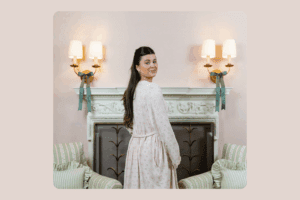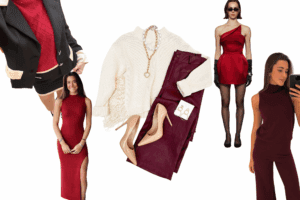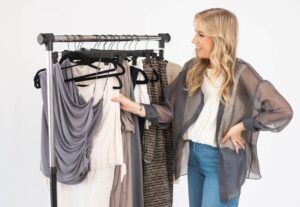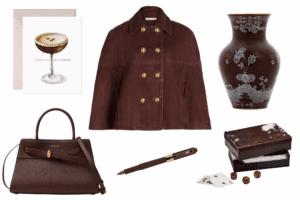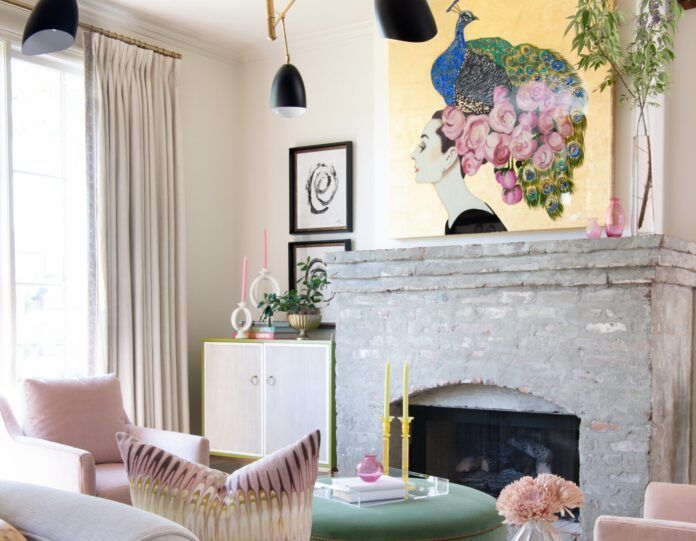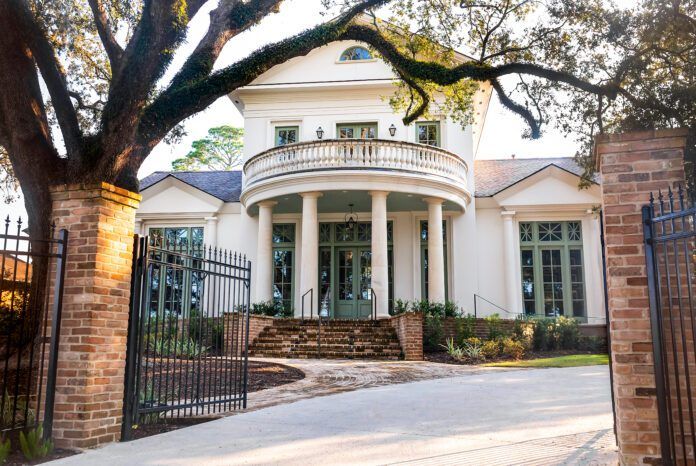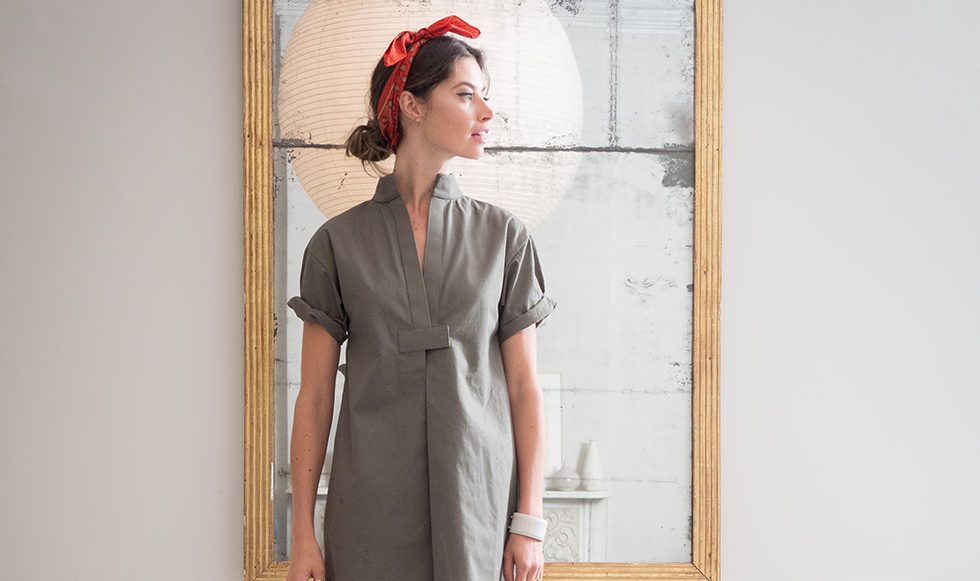
Brand new: Jessica Osborn helps fashion-forward clients launch their own clothing lines
The business ins and outs of launching your own clothing line can be a daunting task. That’s why entrepreneur Jessica Osborn created Privy Label, a New Orleans-based company specializing in bringing custom men’s and women’s apparel lines to fruition through design, development and production.
Privy Label is not a clothing brand in itself, says Osborn, 30, who graduated from LSU in 2012 with a degree in apparel design and fashion merchandising. Instead, Privy Label helps clients—ranging from interior decorators to professional athletes—who may not have the necessary expertise launch their own private label clothing brands.
“Maybe they don’t have access to pattern makers,” Osborn says. “They don’t have access to sample seamstresses. They don’t know where to get the best fabric. They don’t know where to get the notions and buttons or trims or zippers that pull together. It’s easy to go to a store and find this stuff, but it’s not easy to get it at the right price and get it from a good quality place. That’s what we’re bringing to the table: expertise and access to a network of fabric mills and factories.”
Osborn offers design-to-delivery service, with the client handling their brand’s sales and marketing. “Sometimes I’ll explain it as an outsourced design and production team for your business,” she says.
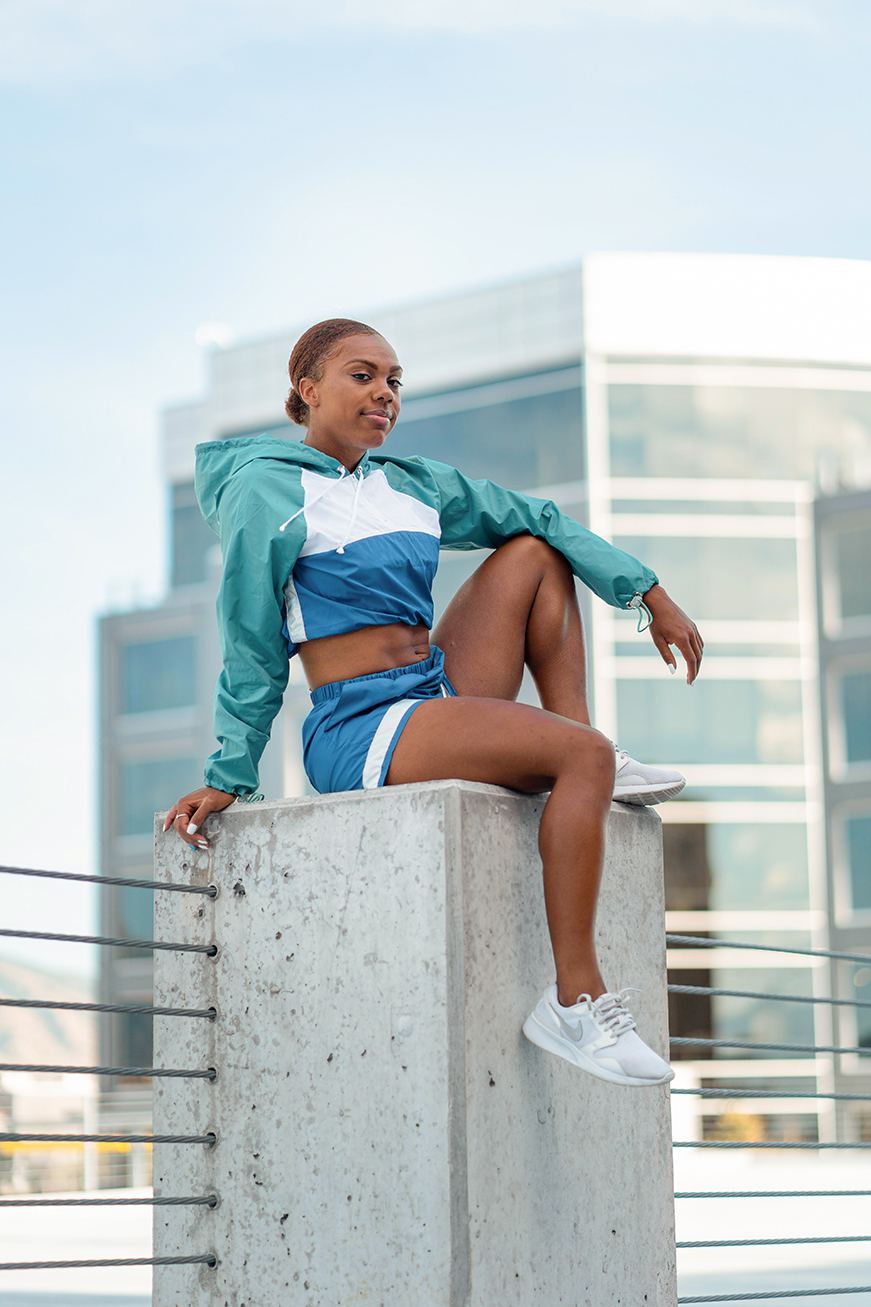
Osborn formed Privy Label in 2017 after realizing there was no private label company that strictly created branded clothing lines for other companies or clients, she says. She works with fellow LSU graduate Cristina Contreras, Privy Label’s director of operations, in office space above the Contemporary Arts Center on Camp Street in New Orleans.
Always artistic, Osborn grew up in Covington and learned to sew from her mom. She first seriously thought about becoming a fashion designer at age 16 when she participated in an intensive fashion summer program at New York University. As a college student, Osborn studied abroad in New Zealand at Massey University, where she took sewing construction courses. She interned at Billabong, working in the women’s design department; it was there that she had a realization about her desired career path. “I wanted to work for a smaller company where I could get more of a variety of experience and not be so pigeonholed into one thing, because I wasn’t exactly sure what I wanted at that point,” Osborn says.
After college graduation, Osborn worked for nearly six years at Tasc, then a startup out of New Orleans focused on organic cotton and bamboo activewear. Passionate about sustainability, she traveled to manufacturers and trade shows across the country to learn how brands could reduce emissions using local manufacturers and produce clothing in a more eco-friendly way, she says.
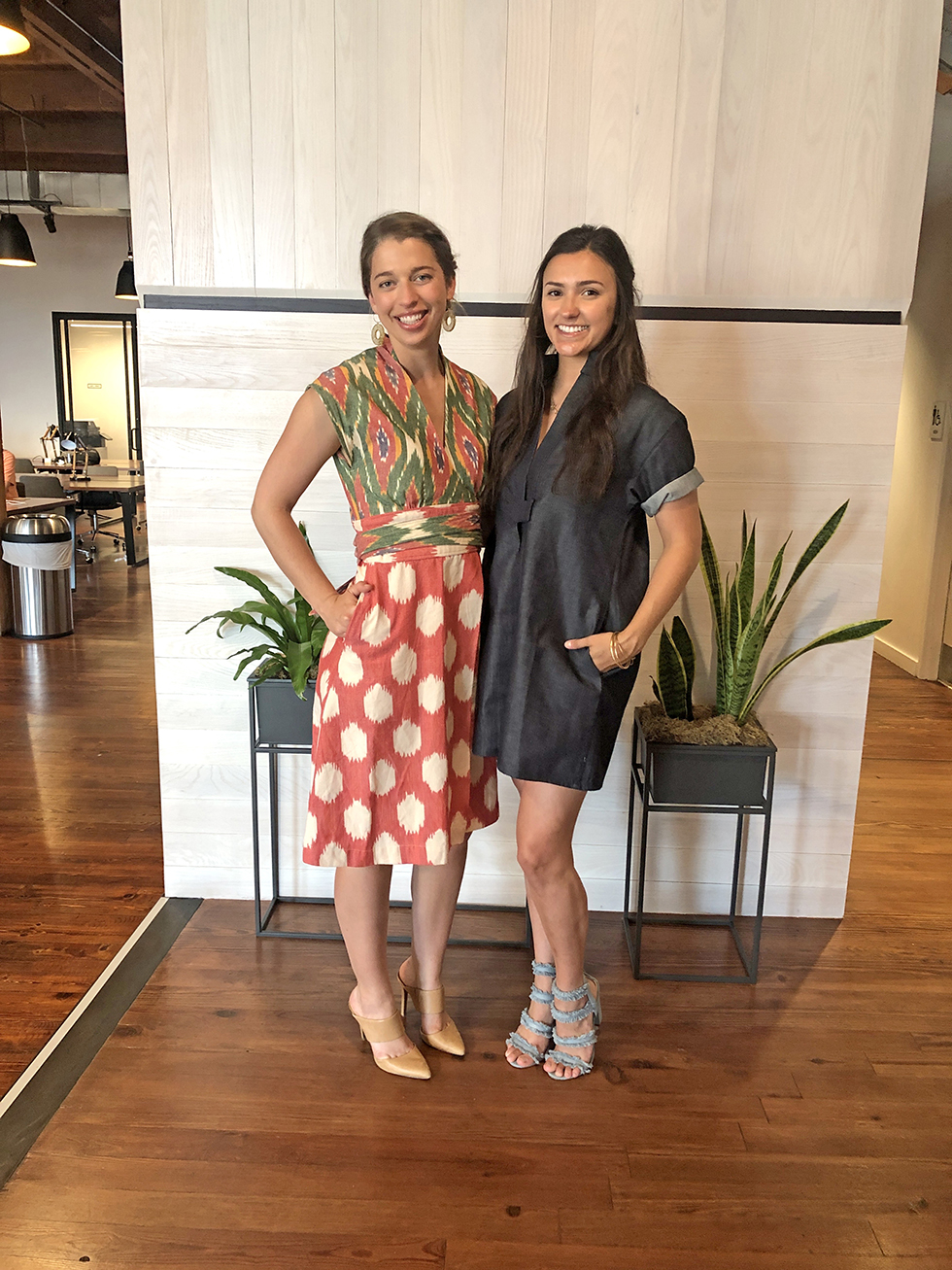
Privy Label’s collaborative process begins when a client arrives with a design sketch or idea. The Privy Label team sources fabrics and sends the client a package of different fabric options. Privy Label then takes the initial pencil sketch design and turns it into a technical package, or “tech pack,” containing all the information necessary to construct the garment. Once approved by the client, Louisiana-based pattern makers and seamstresses begin creating the first prototype. At a model fitting, the client has their first opportunity to see the design in real life. If any changes are needed, adjustments are made and the seamstresses and pattern makers begin again.
Osborn says Privy Label goes through this process about three times before it gets the green light from the client. “It’s a very, very time-consuming process to get the fit right on a garment that you’re buying from any store,” Osborn says. “There’s been a lot of human hours that have gone into it.”
Once the client approves the final product, Privy Label takes the final tech pack, photos and samples and sends them to production at one of their 10 partner factories, all based in the United States. These factories offer low minimum-order quantities starting at 50 to 200 units, which is ideal for new brands, Osborn says.
One of Privy Label’s first clients was Sara Ruffin Costello, an interior decorator with her own jewelry line who wanted to expand to a clothing line. “She couldn’t find the right people to help, so she hired us to build her first collection,” says Osborn. “It was a huge success. She sold out of everything. Now, we’re working on reorders.”
Other Privy Label clients include professional women’s soccer player Jasmyne Spencer, who wanted to expand her “Jas It Up” activewear line, and Christina Yother, a designer launching her own collection of high-end silk dresses.
“I don’t have any brand attached to me that I care about promoting,” Osborn says. “I only want to help the brands that are our clients’.”




